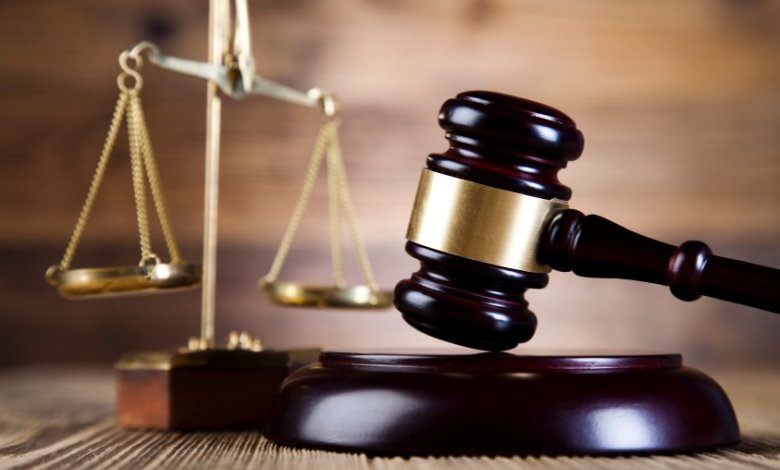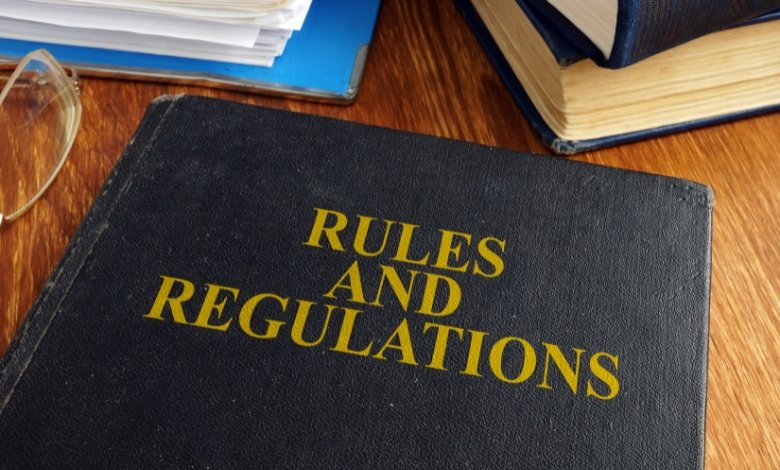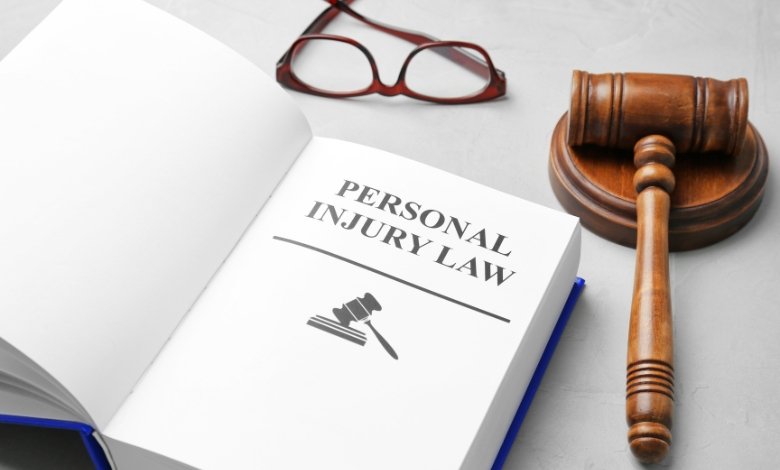Look into “Is Personal Injury Court Real?” to learn important details about Judge Gino Brogdon’s background and veracity.
Television has long been a medium that blends reality with entertainment, and legal dramas are no exception. Among these, Personal Injury Court stands out as a show that presents real-life personal injury cases in a courtroom setting. However, this raises a pertinent question: Is Personal Injury Court real? This article examines five key facts that provide clarity on the authenticity of the show.
Table of Contents
Authenticity Probed: Is the Personal Injury Court Show Real?
The genre of the legal drama captured viewers for years as a means to watch the justice system in action with an entertaining flare. Personal Injury Court begins by promoting that the series is based on real legal cases, all of which are being heard by Judge Gino Brogdon. As a result, most everyone wants to know one thing: is injury court real?
The truth about Personal Injury Court lies in its hybrid nature: though inspired by real events, the cases are reenacted for television with actors usually taking the place of the involved parties. That already sets a level of dramatization open to question right there. Therefore, the answer to whether the show Personal Injury Court is real should be quite nuanced. The cases are all fact-based, but the presentation is for the sake of entertainment, a mix of actual law and fictionalized circumstances. For real legal advice and representation, consulting a qualified personal injury lawyer is essential to understanding your rights and navigating genuine legal matters effectively. In more specialized cases, such as those involving mistreatment within organizations or facilities, seeking guidance from an institutional abuse lawyer can provide the focused expertise needed to pursue justice.
Judge Gino Brogdon: Unveiling the Myth Behind the Real Judge

Judge Gino Brogdon is at the core of Personal Injury Court, a name that has become synonymous with the show through the command and knowledge of the law that he has. This has begged the questions over time, whether the Personal Injury Court with Judge Gino is real and the answer to all with no doubt would be yes, Judge Gino is indeed a real judge, very knowledgeable in the law with many years of experience under his belt.
Judge Brogdon was an actual Superior Court judge in Georgia under whose jurisdiction criminal and civil cases. His qualifications and experience are real, and bring credence to the persona he plays on the television show. On the other hand, as much as the knowledge of the law possessed by Judge Brogdon is actual, the courtroom drama featuring on Personal Injury Court is designed for television. It is a version of courtroom drama simplified and dramatized for the visual entertainment of viewers.
What Ever Happened to Judge Gino Brogdon? Back Stories and Inside Perspectives
Viewers of the show Personal Injury Court have certainly witnessed a lot of flip-flopping, particularly on speculation about the future of Judge Gino Brogdon. The question has everybody asking: “What happened to Judge Gino?
This famous Judge, Gino Brogdon, remains a present part of the legal fraternity outside of this television show. Personal Injury Court has certainly garnered him some special attention, but his commitment to the law is something of a forever factor. And irrespective of whether this remains a show that goes on, Judge Brogdon is a force indeed in this world of law or entertainment. In case you are concerned about his fate concerning this show, you should understand that his legal career is way above things that happen on a television show.
Personal Injury Court Canceled: The Story Behind the Show’s End
The cancellation of Personal Injury Court has been a subject of much debate among its viewers. Many have started to question the legitimacy of the show in relation to its cancellation. Is Personal Injury Court real or fake because of its cancellation?
There are so many things that need to be clarified: Personal Injury Court had its heyday during a time of faddish popularity for some shows and fickle viewer trends. Now the facts to be canceled cannot make vain the truth: the show did create some level of awareness to personal injury law and brought some of the other legal quandaries into public debate. The world of entertainment is dynamic, where the end of a show usually has more to do with business decisions than a judgment regarding the quality or authenticity of the material.
Personal Injury Law in the UK: The important regulations and rights

Although the Court on Personal Injury is American based, their delivery regarding personal injury matters has triggered another debate on the principles of personal injury law across the world. In the United Kingdom, personal injury law is guided by different legal parameters that everybody must comply with, guaranteeing that those who suffer from negligence can seek compensation.
The bulk of legislation in the UK concerning personal injury law can be found in the overriding statutes concerning time limits over filing a claim under the Limitation Act 1980, and the responsibility of solicitors dealing with personal injuries who have volunteered to serve under the Compensation Act 2006.
Far removed from the melodrama of television series portraying court skullduggery, in real life, personal injuries in the UK usually come to resolution through negotiation or court proceedings devoid of theatrics. Such regulations should be understood by anyone who may need to make a personal injury claim, as they lay the ground on which redress in law can be sought.
The Essentials of a Personal Injury Claim: Understanding Your Legal Rights
A fundamental aspect of personal injury law is the protection of individual rights. While Personal Injury Court offers a simplified view of these cases, real-life personal injury claims are often complex and require a thorough understanding of legal rights.
People who are injured through the fault of others in the United States are free to seek recovery for losses resulting from medical bills, work time lost, and pain and suffering. The general steps this often follows include the filling of a claim, investigation into the evidence, and potentially the holding of court. Though Personal Injury Court tends to glamorize these types of cases for the viewing audience, they are often convoluted in nature and generally require deliberate and strategic planning and maneuvers through the legal system, most often with the aid of experienced counsel.
Personal Injury Protection: Your Legal Guards Assured
Legal safeguards in personal injury cases are essential to ensure that victims receive just compensation. While Personal Injury Court highlights the outcomes of these cases, the real-world process involves much more than what is depicted on television.
Most importantly, it is necessary to understand the laws and procedures that apply to a personal injury case to protect your legal rights. This includes being aware of the statute of limitations, establishing negligence, and knowing the types of compensation one may be entitled to receive. Securing local legal representation is also crucial; For example, an experienced Tustin personal injury lawyer understands the local courts, judges, and procedures in the area, giving your case a strategic advantage from the start. The dramatized portrayal by Personal Injury Court may simplify matters, but real-life personal injury cases require a comprehensive approach to legal protection.
Is Court TV Real? Investigating the Authenticity of Legal Dramas

More broadly, the representation and the authenticity of court TV shows come into question with the prevalence of legal dramas like Personal Injury Court. Is Court TV real? Are the shows an accurate representation of the legal systems or, are they more about entertainment?
Most of the court TV series, such as Personal Injury Court, are a mix of reality and fiction. The shows are sometimes inspired by real cases but dramatically reenacted to keep viewers interested. This may involve pre-scripted interactions, altered timelines, and reenactments of litigants and witnesses. These shows are entertaining and do, indeed, sensitize a person toward legal concepts but are not an exact representation of how things go in a real courtroom. They therefore add a full stop as a source of amusement, which somewhere makes a cursory view of the sophisticated legal system.
FAQs
Q: Is the show “Personal Injury Court” based on real cases?
Yes, “Personal Injury Court” is based on real cases, but the actors dramatize re-enactments of such cases for television. While based on real disputes, the dispositions in this courtroom are based on actual legal principles, although the process on the show is overly simplified and dramatized for entertainment.
Q: Is Judge Gino Brogdon a real judge on “Personal Injury Court”?
Yes, Judge Gino Brogdon is an actual judge with a genuine legal background. He was a judge for the Superior Court of Georgia, hearing a variety of criminal and civil cases. His qualifications and experience are authentic, though the courtroom matters have been sensationalized for TV.
Q: Did “Personal Injury Court” get canceled, and why?
The most likely reason “Personal Injury Court” was canceled is simply that television programming and audience taste change so quickly—not because there was anything definitely wrong that proved it wasn’t real. The baseline issues in TV programming and audience experience typically factor into cancellations. In actuality, one can probably presume it was neither the legitimacy of the cases nor the legitimacy of the judge that was at issue here.
Q: How does “Personal Injury Court” compare to real courtroom proceedings?
Is the action of “Personal Injury Court” not representative of the way in which proceedings in a real-life courtroom actually occur? That’s right because they are really founded on the cases, but have to be simplified to engage with the audience and make it realistic. Unlike the proceedings in this scripted show, a more detailed, formal, and complex account truly exists in real court cases.
Conclusion:
I don’t know many shows that are capable of combining both reality and drama; that is the case in Personal Injury Court, which is informative and has an element of entertainment to it. Certainly, the cases have been inspired by real events, and the judge himself, Gino Brogdon, is a practicing legal professional, but the show is produced for TV. It simplifies complex legal matters and adds dramatization to make them dramatic to the audience.
Important takeaways noted from the show are, of course, reminders of what must typically be drawn as the line between what can be viewed on television and actual practice of the law. While Personal Injury Court no longer airs on the tubes, the public’s consciousness and knowledge on personal injury law were definitely touched and elevated because of the program. For viewers, the key takeaway is to enjoy the show for its entertainment value while recognizing the distinction between TV portrayals and real-life legal practice.


